Five talking points from the World Championships 2022
Remco Evenpoel begins his reign while Annemiek van Vleuten toasts one of the best seasons ever
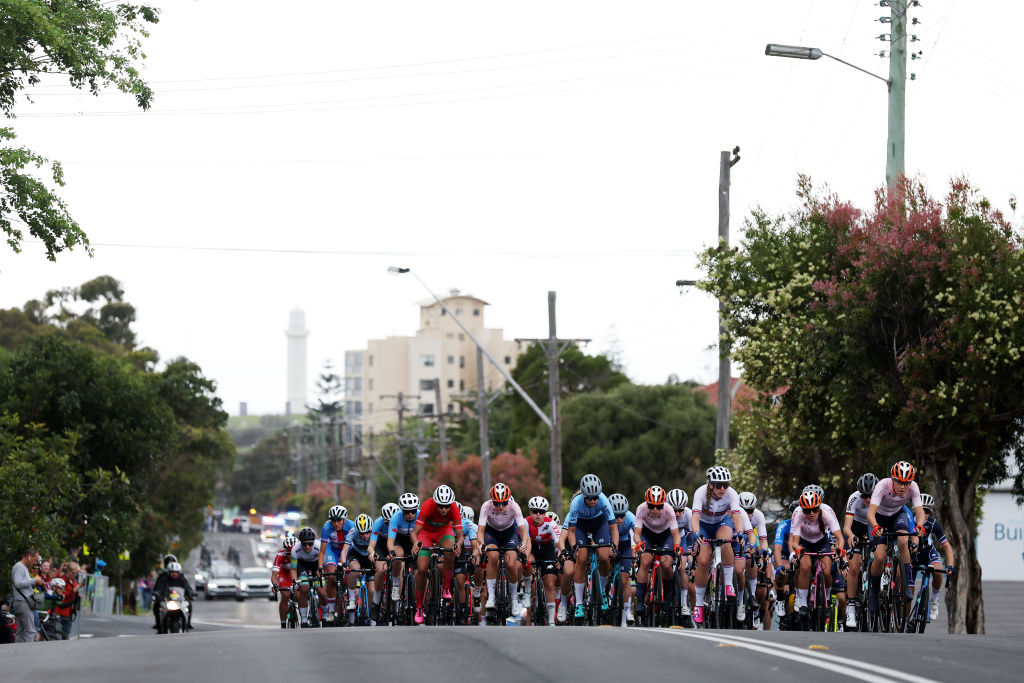
The latest race content, interviews, features, reviews and expert buying guides, direct to your inbox!
You are now subscribed
Your newsletter sign-up was successful
It has been a hectic and historic week of racing in Wollongong Australia at the World Championships.
Here's what we've learned along the way.
The Evenepoel reign is upon us
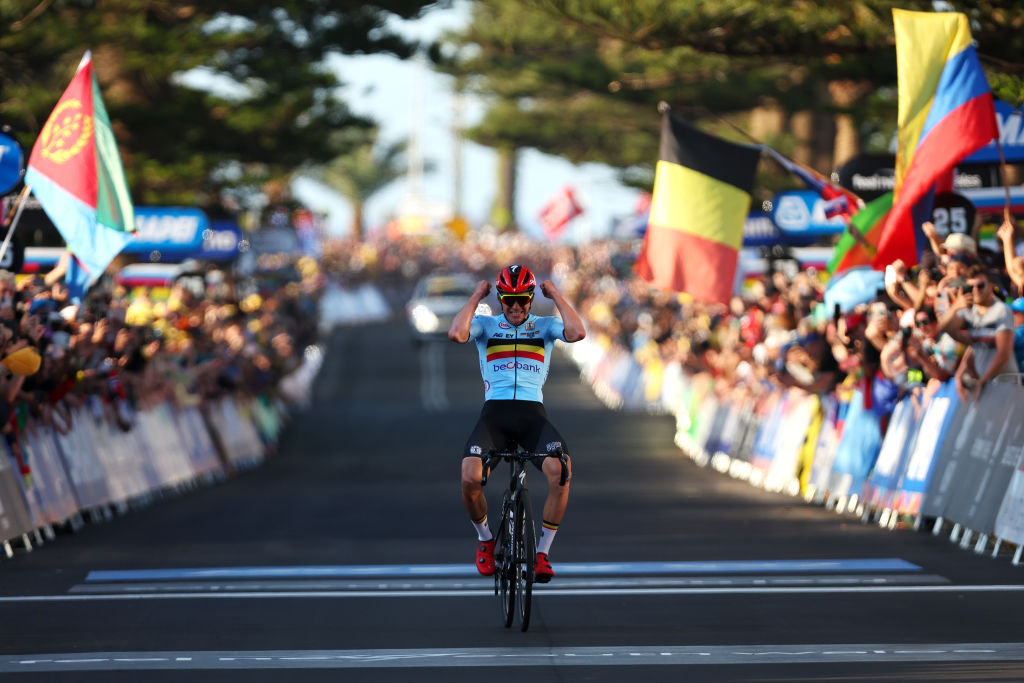
For once, the well-worn and much-abused moniker of ‘the new Eddy Merckx’ does not seem wildly inappropriate when it comes to Remco Evenepoel.
The way he attacked 35km from the finish in the men’s road race on Sunday, before taking off solo 10km later on the penultimate ascent of Mount Pleasant to win by an eventual margin of 2-21, could easily be described as Merckx-esque. The only thing that gives us pause in doing so is that Evenepoel has already made such rides his own trademark, with similar victories earlier this year at Liège–Bastogne–Liège and San Sebastian.
It was a stunning ride to end what has been a stunning season for the Belgian, and confirmation that he is now unarguably among the best, if not the very best, in the world.
Having completed overall victory at the Vuelta a España just two weeks ago, he becomes the first rider since Bernard Hinault in 1980 to win a Grand Tour, monument and Worlds title in the same season. And by doing so at the age of just 22, he becomes the youngest rider to complete the set since, you guessed it, Eddy Merckx.
You know you’ve witnessed something special when you start bringing out the Merckx statistics, and Evenepoel’s ride was indeed one for the ages.
The latest race content, interviews, features, reviews and expert buying guides, direct to your inbox!
He did benefit from a tactical blunder from the other teams by letting him get up the road in a break around 75km from the finish, but that shouldn’t take away from the devastating power of his attack. To accelerate away from the rest of the breakaway on such flat roads, and maintain such a big advantage over a chasing peloton full of stars (including Christophe Laporte and Michael Matthews, who sprinted for second and third respectively), was a display of a real star. He’s sure to be an awesome custodian of the rainbow jersey.
Van Vleuten's 2022 is one of the all-time great seasons
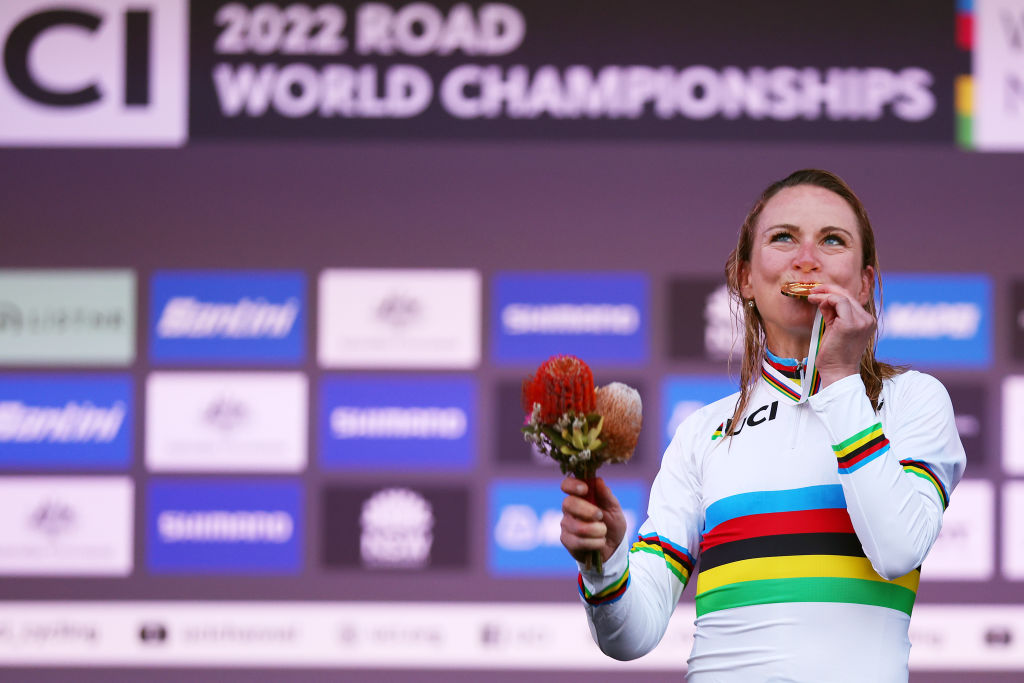
The introduction of the Tour de France Femmes this year meant that, for the first time since the former Tour de France-equivalent Grande Boucle Féminine Internationale ceased to exist after 2009, a Giro/Tour/Worlds treble was, at least in theory, possible for a woman to achieve.
And by winning the road race in Wollongong on Saturday, Annemiek Van Vleuten has somehow, on the first time of asking, achieved that very feat, one that only two men have ever managed (Stephen Roche in 1987 and Eddy Merckx in 1974).
It brings to an astonishing end what has been one of the all-time great seasons from Van Vleuten. The retirement of her great rival Anna van der Breggen paved the way for her to be the outright best rider in the world, but the way she has routinely crushed the opposition in virtually every big race she has featured in has been truly remarkable.
What makes the hat-trick even more impressive is how much misfortune and hardship she has had to overcome along the way. Just like at the Tour de France Femmes, where she was struck by a terribly-timed bout of illness, Van Vleuten rode the Worlds with a significant handicap, having fractured her elbow in a horrible crash riding for the Netherlands in the Mixed Relay (won by Switzerland) three days earlier.
She won the race through expert timing rather than physical strength, making a race-winning attack inside the final kilometre having been dropped by the other favourites multiple times earlier on the climbs, leaving Lotte Kopecky and Silvia Persico to spring for silver and bronze respectively. Now she’ll get to wear the rainbow jersey in what will be her final season as a professional, a fitting way to end what has been a superb career.
Impressive youth powers GB to top medal table
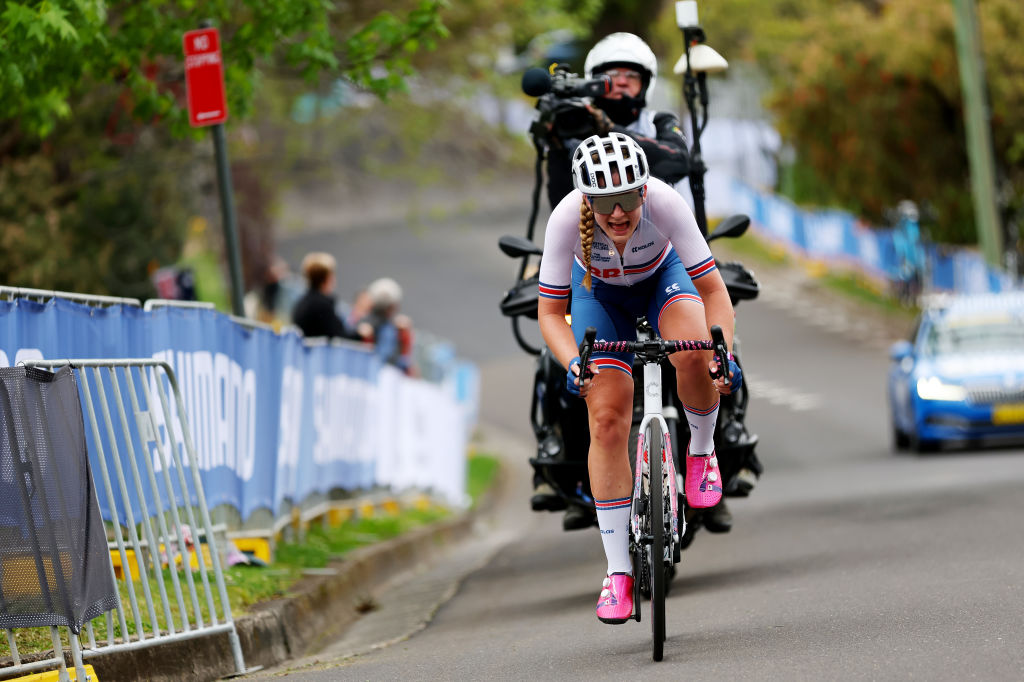
Great Britain might not have landed a medal in any of the elite events, but nevertheless managed to top the medal table thanks to stellar performances from the young riders.
Zoe Bäckstedt was the star, doubling up with golds in both the junior road race and junior time trial. And not only did she win both races, she utterly destroyed the competition, finishing with a huge margin of 1-36 over Justyna Czapla in the time trial, and defending her road title with an extraordinary long-range attack on the very first lap. The Welshwoman looks destined to be a star.
There was a third gold medal thanks to Josh Tarling in the junior men’s time trial, while Leo Hayter won bronze in the under-23 time trial and Pfeiffer Georgi was awarded silver in the women’s under-23 road race.
The youthful contingent in the men’s road race didn't quite live up to expectations, with Ethan Hayter the best-placed finisher in ninth, but Hayter did a great time trial to place fourth, and may well have won a medal had he not had to have a bike change.
The old guard of Chris Froome, Mark Cavendish and Geraint Thomas might all be getting on in years now, but the future of British cycling is looking brighter than ever.
Under-23 races still in need of shake-up
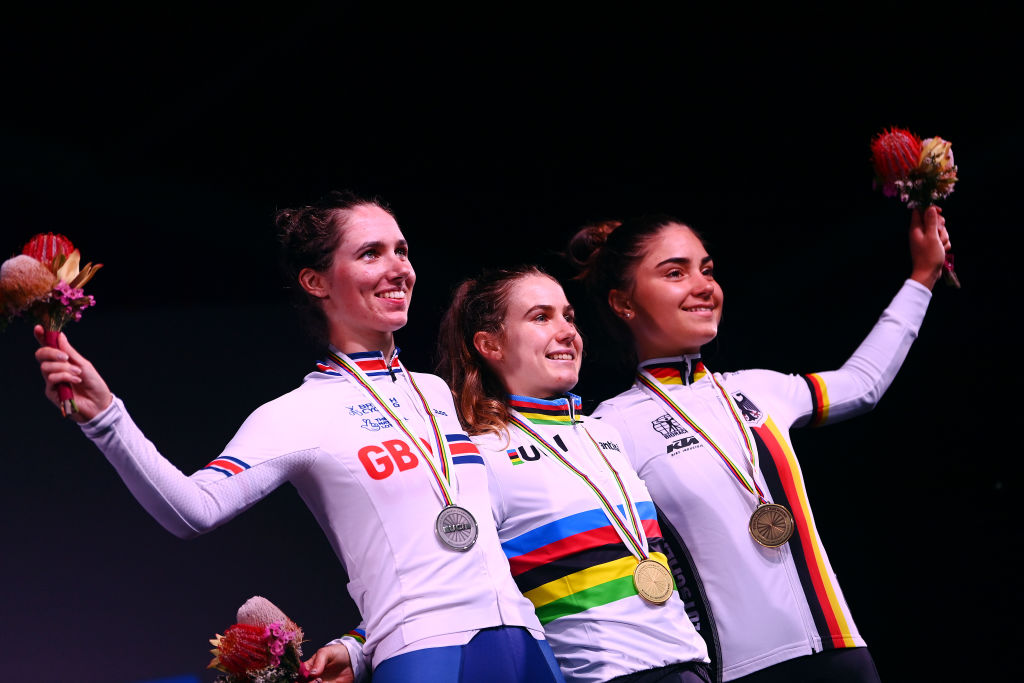
The decision to reward the women’s under-23 jersey to whichever rider of that age to finish highest in the elite race did not really work. Niamh Fisher-Black and Vittoria Guazzini ‘won’ the titles by placing respectively 12th in the road race and fourth in the time trial (Britain's Pfeiffer Georgi was second in the road race), but their victories lacked the competitive element to make it feel like a genuine contest.
We’ll still have to wait two years until the introduction of a separate women’s under-23 race, but whether or not the UCI decides to maintain the current system at the 2024 Worlds remains to be seen.
The men’s under-23 road race was a reminder of the value of a separate, distinct event, producing plenty of excitement and intrigue. Held the day before the climactic weekend double-header of the elite women and men’s races, it served to whet the appetite with an exciting edition, with Kazakh Yevgeniy Fedorov triumphant with an aggressive ride.
But even this aspect of the under-23’s might need a rethink. The 22-year-old has already spent two seasons riding in the World Tour since signing for Astana in 2021, and having him compete alongside non-World Tour riders does arguably defeat the purpose of the event, especially as he won’t be showing off his newly acquired rainbow jersey on the under-23 circuit next year.
And as the age of the star men gets younger and younger (the elite champion, Evenepoel, was after all young enough to compete in that race), maybe the age category should be reduced to something like under-21?
Elite time trials produce the expected, and the unexpected
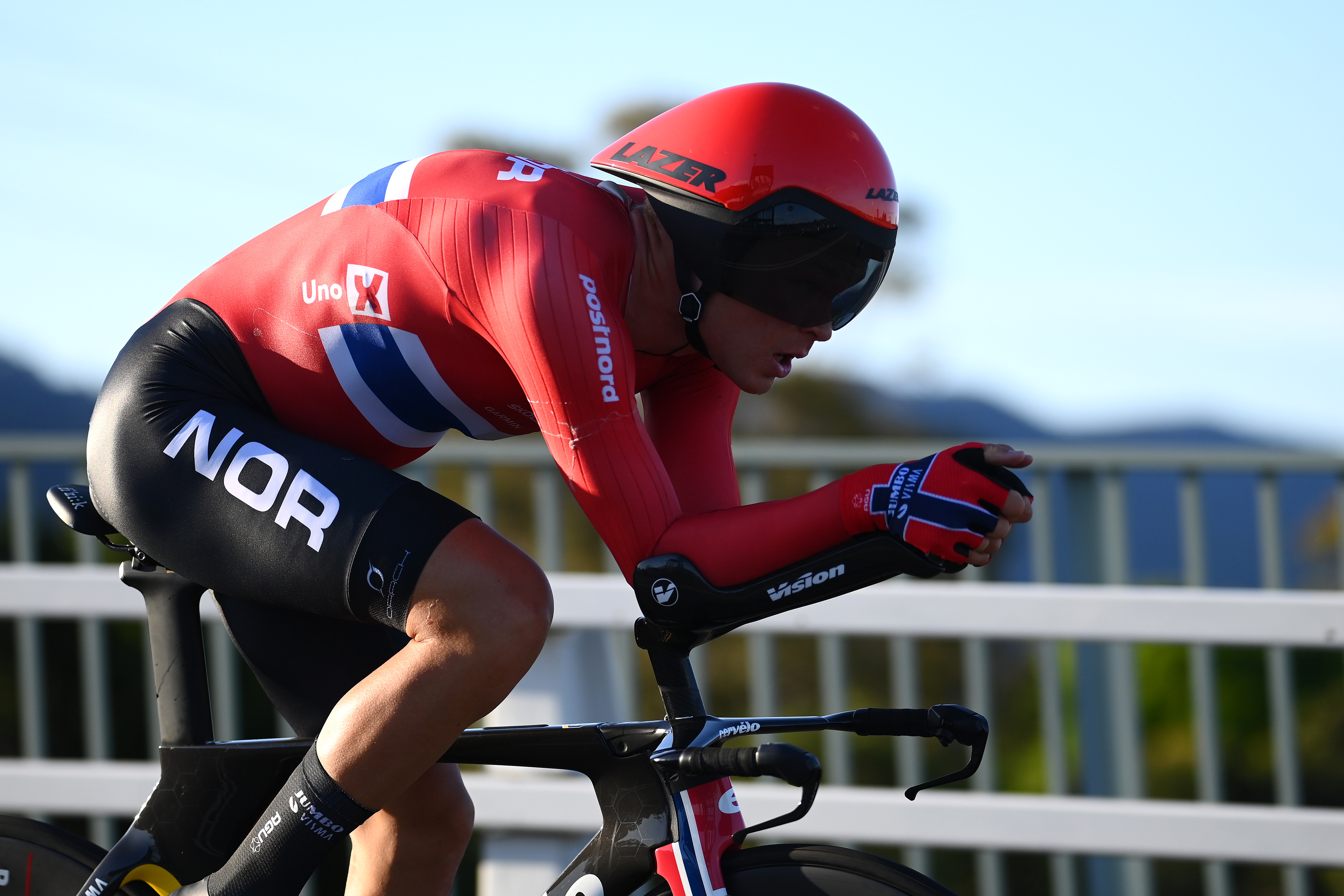
There was no significant surprise in the elite women’s time trial, which saw Ellen van Dijk once again crowned world champion. The 35-year-old had already won the event twice, including last year in Belgium, and has been in great form against the clock all year, winning in four of the five previous appearances this season, as well as breaking the hour record.
The win puts her second on the all-time list of most women’s World individual time trial titles, just one behind record-holder Jeannie Longo.
Neither was there any major upset in terms of the other medal winners. Van Vleuten might have been expected to place higher than seventh, but Grace Brown’s silver medal is a natural progression from her having placed fourth at the Olympics last year, and bronze for Marlen Reusser makes it three successive medals in as many years (any disappointed at not finishing higher will have been curtailed a little by winning the Mixed Relay as part of the Swiss team).
The men’s race, by contrast, threw up one of the biggest surprises in World Championship history, as the unfancied Tobias Foss took gold. Up against a stellar line-up of Grand Tour champions Tadej Pogačar and Remco Evenepoel (who took bronze), and defending champion Filippo Ganna, Foss somehow came out on top; purely on merit too, and not favourable fluctuation conditions, as sometimes happens at time trials.
Aged just 25, the Norwegian is still developing as a rider, and it seems time trialling might be his forte — though, having placed ninth at the Giro last year, this improved time trialling might also bolster his credentials as a Grand Tour rider, should his climbing improve at a similar rate.
Foss’ gain was Stefan Küng’s loss, as the Swiss had to accept yet another heart-breaking near miss, in a similar manner to his disappointments at the Olympics and Tour de France last year. He’s becoming one of cycling’s great nearly-men, and fans around the world will be willing him to land the big time trial win he no surely deserves.
Stephen Puddicombe is a freelance journalist for Cycling Weekly, who regularly contributes to our World Tour racing coverage with race reports, news stories, interviews and features. Outside of cycling, he also enjoys writing about film and TV - but you won't find much of that content embedded into his CW articles.